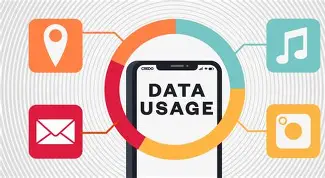The recent report from the Postal and Telecommunications Regulatory Authority of Zimbabwe (POTRAZ) reveals a significant increase in mobile internet data usage, with traffic soaring by 24.13% from the third to the fourth quarter of 2024.
This surge, from 78.38 Petabytes to 97.19 Petabytes, reflects a profound shift in how Zimbabweans engage with the digital world. Several factors contribute to this trend, and it is imperative to analyze the implications for both individuals and society as a whole.
By Ropafadzo Mashawi
One primary driver of this data explosion is the increasing reliance on the internet for daily activities. The prevalence of social media platforms such as WhatsApp, Facebook, and Instagram has transformed how individuals communicate and access information.
The report highlights the “wide adoption of smartphones and social media engagement” as critical factors in this trend. As smartphones become more affordable, a greater number of Zimbabweans are gaining access to online spaces, thereby increasing data consumption.
E-commerce and e-learning are also pivotal in driving internet usage. The comfort of online shopping—ranging from groceries to electronics—has made it a preferred choice for many consumers. This shift not only facilitates convenience but also necessitates a higher volume of data for browsing and transactions.
Furthermore, the rise of online education, particularly in the aftermath of the pandemic, has made access to digital learning materials essential for students across various educational levels. While this represents a positive advancement in educational accessibility, it raises concerns regarding the affordability of data for families.
Entertainment consumption patterns have similarly evolved, with streaming services for music and video gaining popularity. The demand for on-demand content allows users to curate their viewing and listening experiences but also substantially increases data requirements. The shift toward high-definition content further compounds this issue, as users seek quality experiences in their media consumption.
An essential factor contributing to the increase in data traffic is the enhancement of network infrastructure. Mobile operators, including Econet, NetOne, and Telecel, have invested in upgrading their services, particularly through the expansion of LTE (4G) and the initial rollout of 5G technologies.
Improved network speeds facilitate greater online engagement, as users are less likely to abandon tasks due to buffering or slow download times. For instance, Econet reported a remarkable 28.00% increase in mobile data traffic, underscoring the role of infrastructure in shaping user behavior.
The growing reliance on the internet is also evident within the business sector, where companies increasingly utilize online platforms for marketing and operational efficiency.
This digital transformation is essential for competitiveness in a rapidly evolving market. However, it simultaneously contributes to the overall demand for data, necessitating a careful balance between business needs and consumer accessibility.
The festive season at the end of 2024 likely exacerbated the data spike, as social connections and celebrations drive increased online engagement. This seasonal trend highlights the cyclical nature of data usage and its correlation with social behaviors.
Despite the promising growth in digital engagement, significant challenges remain. The affordability of data is a pressing concern. While competition exists among service providers, many households still find the cost of data burdensome. It is critical to address this issue to ensure that the digital revolution does not exclude segments of the population unable to afford connectivity.
Moreover, network capacity raises another critical question. Can existing infrastructure adequately support the rising demand for data? Users frequently encounter slow internet speeds and connection issues, especially during peak usage times. Ongoing investment in robust network coverage is essential to meet the needs of an increasingly digital society.
The surge in internet data usage among Zimbabweans signifies a crucial step toward greater digital engagement and societal progress. However, it also necessitates a concerted effort from various stakeholders—including the government, regulators, network operators, and consumers—to ensure that this digital landscape is equitable and accessible.
As Zimbabwe embraces this transformation, it is imperative to prioritize reliability, affordability, and inclusivity to empower all citizens to benefit from the vast opportunities that the internet offers. The numbers presented in the POTRAZ report serve as a wake-up call, urging collective action to shape a digital future that serves the interests of all Zimbabweans.














Comments